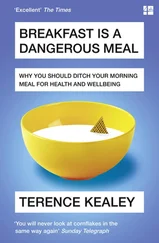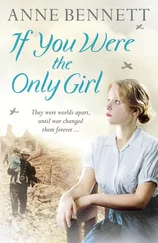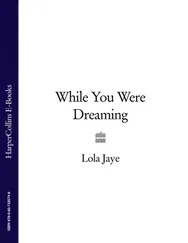Seth retrieves the red lanyard and clips his card onto it. Reluctantly puts it around his neck. The Weasel chortles.
‘Besides, we can’t have those Greens sneaking around the red section, stealing our brand strategies!’
There are posters on the walls: pictures of the Fourteen Wonders of the world on dark blue backgrounds with slogans like: ‘It’s Not a Problem, it’s a Challenge’ and ‘Opportunities are Everywhere’.
He waits for The Weasel to go before he dumps the rest of the welcome pack into the bin. The shirt continues to fizz. He swivels his ergochair around, stares out of the window. He hears someone laugh in the corridor. The grounds are immaculate: the lawn grass smooth and green; perfectly tended bright annuals burst with complimentary colours under canopies of handsome indigenous trees. Cheerful employees pass each other with a smile or a wave. The campus is like a hotbed of high spirits, cleanliness, and efficiency. A bright island in the dark fuss that is the rest of the country. Seth pops a pill. Yes, he thinks, there is definitely something very odd going on around here.
Johannesburg, 2021
Kirsten catches the waiter’s attention and motions for another round. She is sitting on her own in Molly Q’s, a retro-restaurant, the only one in Johannesburg that still serves molecular cuisine.
It’s her favourite, and James had booked a table for them for his first night back home. Kirsten’s favourite gastroventure, she loves the purity of the flavours here; the shapes she sees and feels are so vivid and in focus.
She is drinking their signature cocktail, an unBloody Mary-Contrary. The purest vodka swirled with clear tomato water and essence of pepper. They serve it with a long, slender, frozen piece of celery-green glass. Kirsten takes a sip and feels the crystalline shapes appear before her. Not as strong as the first drink, but quite clear nevertheless.
Damn the law of diminishing returns.
They’ll get stronger, more palpable, later in the evening; alcohol always makes her synaesthesia more pronounced. Suddenly she feels lips on her forehead, sunshine hue, a warm hand on her back, and she blinks past the crystals to see James.
‘Kitty! I missed you.’
She springs up to hug him, inhales the tang of his neck. He smells like Zimbabwe: hand sanitiser and aeroplane cabin. Also: miswak chewing gum that has long lost its flavour. They hold onto each other for a while.
‘I missed you too.’ It was true.
They sit down, and Kirsten orders a craft beer for him, a hoppy ale; he doesn’t drink cocktails. He always laughs out loud when they watch old movies and James Bond drinks a martini.
‘How’s the clinic?’
He has a slight tan, despite his usually fanatical compulsion to apply SPF100, and crumpled cotton sleeves. He looks tired, but well.
‘Understaffed, underfunded, and bursting with sick people: sick children, sick babies. It was difficult to leave.’
Something small in Kirsten splinters. He grabs her hand.
‘Of course, I’d rather be with you than anywhere, but there are just so many—’
‘I understand,’ she says, looking away. It’s easier to be with people you can help.
‘So many of the babies there are hungry and neglected. Not like here,’ he says.
‘Not like here,’ she agrees. How can you neglect a baby? How come those creeps are fertile, she thinks, when I’m not?
‘I mean I can see how the border-baby trade is thriving. When you see kids like that you get the feeling that their parents would gladly part with them for a couple of hundred thousand rand.’
‘Awful,’ says Kirsten, pulling a face. ‘They should write it into law that you need to qualify for a parenting license before you’re allowed to procreate.’
‘You don’t mean that,’ James says, but she kind of does.
They order the set menu, and an amuse bouche of wooded chardonnay gelée with pink balsamic caviar arrives, then Asian crudo with a brush of avocado silk, and wasabi sorbet. They keep quiet for the first few bites, allowing Kirsten to appreciate all the shapes, colours and textures of the flavours. The wasabi sorbet in particular sends cool ninja stars into her brain. It feels good.
‘How are you?’ James asks, ‘how have you been holding up?’
‘I had a very interesting weekend,’ she says, spooning the last of the wasabi into her mouth and feeling the jagged edges of the stars fade away. ‘I discovered the reason I’m so, well, fucked up.’
James takes a long, slow sip of his beer. They had been through this so many times before.
One of the problems with long-term mono-relationships, she thinks , is that listening to the same old issues gets eyeball-bleedingly boring. At least now she has a new angle.
He looks at her, measuring her mood, puts his glass down. She senses him sighing on the inside.
‘Kitty, you’re not fucked up.’
‘I am, a little.’
‘Okay, you are, a little. But so is everyone else. You’re just more aware of your fucked-up-ness than the average creep, because you’re…’
‘Special?’
‘Not what I was going to say, but let’s go with that.’
They smile at each other, and it reminds them both of when they started dating in varsity. When things were still shiny.
‘Do you mean your synaesthesia?’ He knows she doesn’t.
‘No, the synaesthesia is my light side. I’m talking about my dark side.’
‘The Black Hole,’ he says. God, how he hates The Black Hole.
As a child she had tried to explain it to her parents, thinking that they had it too, that is was a necessary human condition, but they would get frustrated and lose their patience, just as James does now. Perhaps The Black Hole on its own would have been fine, but together with her synaesthesia it seemed too much for them to handle. It caused a rift: a cool, empty space between them that could easily be ignored; not often navigated.
Once, when she was still in primary school, she had tried to explain the emptiness to her mother, who became very upset and stormed out, leaving her at home alone. When the minutes streamed into hours and the started sinking she went to the neighbour’s house: a young couple who, non-plussed, plopped her in front of the television. They fed her milky rooibos and stale Marie biscuits while they whispered into the phone. Afterwards, they sat in the living room with her, making awkward conversation, until the glare of her mother’s advancing headlights lit up their sitting room, announcing with bright hostility her return. It wasn’t the first or the last time her mother had left her on her own.
Eventually, a little desperately, her father had produced Mingi: a meowing yin-yang ball of fluff, hoping the kitten would stitch up The Black Hole, but it didn’t. She kept quiet about it after that, not wanting to cause them any more worry. Now they were gone. And now James was the worrier.
‘And?’ he prompts, ‘what’s the reason?’
She smooths out the polka-dotted tablecloth. She finally says the words out loud: slowly, clearly, listening to her own voice.
‘I think I was adopted.’
James frowns at her: ‘What?’
‘Keke visited while you were away. She found out some… well, to cut a long story short, my mother had a hysterectomy before I was born.’
She lets it sink in. James just looks at her.
‘And,’ she says, taking the birth certificate and magazine clipping out of her bag, ‘look at these. Look at this cheap-ass certificate, probably created in Corel Draw. Do you know that there is not one photo of me as a baby? Not one.’
She flips the imposter-baby picture over to reveal the magazine name and date on the other side. James looks stunned. She doesn’t blame him. She doesn’t quite believe it yet, either. He grabs the photo from her hand and studies it.
Читать дальше
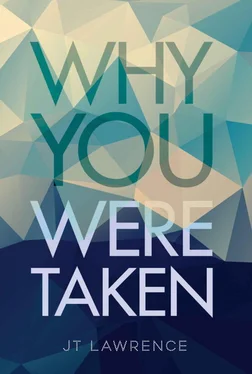



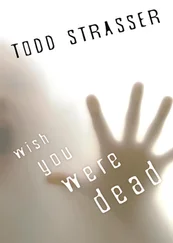
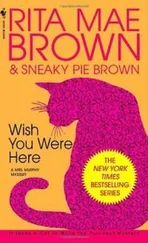
![Питер Джеймс - Wish You Were Dead [story]](/books/430350/piter-dzhejms-wish-you-were-dead-story-thumb.webp)


